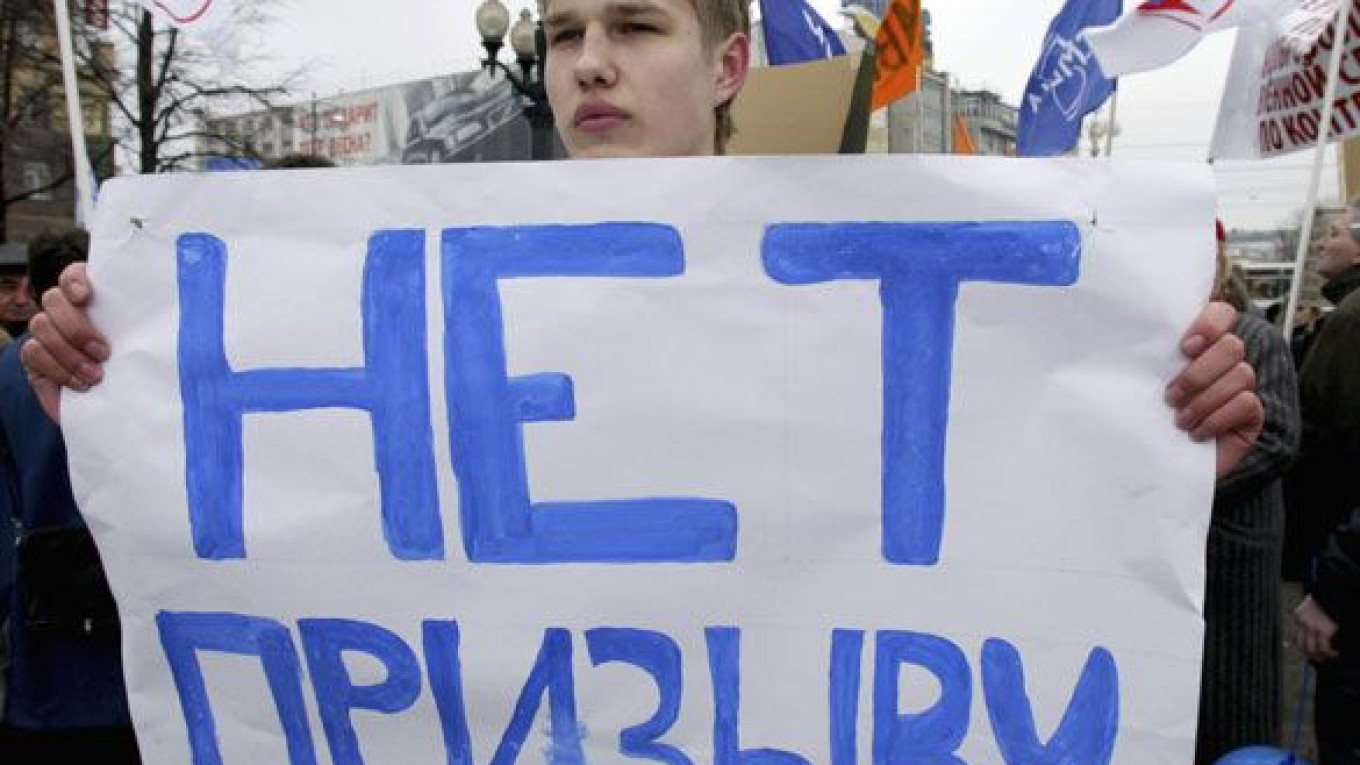Head of the General Staff Nikolai Makarov and Ground Forces chief Alexander Postnikov recently disclosed an important state secret. For the first time, both commanders admitted that the program for partially switching the armed forces to contract service — begun in 2003 and ostensibly brought to a successful conclusion in 2008 — has been a complete failure. As Makarov stated, “Many mistakes were made, and the task of building a professional army was not achieved.”
As usual, the generals revealed what everybody already knew. Analysts and journalists, myself included, have been writing for the past two years that the program to form professional military units had failed miserably. Now the Defense Ministry’s top brass are admitting the obvious.
You could say that it is better late than never, but I would like to know if anyone can account for the 80 billion rubles ($2.7 billion) spent in vain trying to convert the army into a professional one. In addition to misallocated funds, there were other abuses, such as conscripts being coerced into signing contracts for professional duty and commanders confiscating their complaints. Even after the harried soldiers went AWOL, their names were kept on the rolls to pad the numbers for recruiting professional soldiers.
The plan to create a professional army was doomed from the start. There are too many people in the military who have a direct financial and career interest in keeping a conscription army.? Indeed, those who led the efforts to sabotage the professional army are openly celebrating their victory. What’s more, Makarov and Postnikov announced that conscription quotas would actually increase.
There is one problem, however, that could pour rain on their parade: The demographic situation has worsened since the strategy to professionalize the army was first introduced in 2003. As of this year, the number of 18-year-old men in Russia has fallen so low that it would be mathematically impossible to fulfill the military’s conscription requirements unless it drafted those who were physically unfit for service.
Generals have a nasty habit of just pulling numbers out of the air. Vasily Smirnov, who heads the efforts to professionalize the army, claims that 100,000 young men evade their draft summons annually. He suggests making the draft laws stiffer and getting serious about tightening the net to let fewer draft dodgers slip away. According to that logic, the army would obtain the required number of recruits. Smirnov’s subordinate, General Ivan Borodinchik, wholeheartedly supports the position of his chief. However, he claims that 200,000 draftees evade their summons annually. Which one of them is lying? Maybe they both are not telling the truth. Or maybe nobody knows the actual figure.
The problem is that the generals deliberately ignore reality. They want to preserve the draft system by any means possible to torpedo the military reforms of Defense Minister Anatoly Serdyukov. Recall that in 2009, all understaffed military units, or “skeleton units,” in the army were disbanded, and they accounted for 83 percent of all units in the ground forces. With that step, the army lost the ability to mobilize millions of reservists in the event of sudden military danger or conflict — a possibility that was largely hypothetical anyway. In place of those millions of reservists, the army now plans to mobilize only enough military personnel to fill 60 brigades — that is, no more than 300,000 people.
The logical step in this case would be to eliminate the draft altogether. The formal reason the conscription service exists is to prepare reservists who can be called into active duty in the event of a large-scale war. But since that need no longer exists, there is no reason to force 700,000 soldiers into short-term military service every year.
Maintaining a full-scale draft during a demographic crisis will lead to a complete breakdown in how the army is staffed. The generals are hoping that this failure will discredit and undermine Serdyukov’s reforms to such a degree that the army will return to its pre-Serdyukov state of affairs. This way, that the generals can return to doing what they enjoy the most.
Alexander Golts is deputy editor of the online newspaper Yezhednevny Zhurnal.
A Message from The Moscow Times:
Dear readers,
We are facing unprecedented challenges. Russia's Prosecutor General's Office has designated The Moscow Times as an "undesirable" organization, criminalizing our work and putting our staff at risk of prosecution. This follows our earlier unjust labeling as a "foreign agent."
These actions are direct attempts to silence independent journalism in Russia. The authorities claim our work "discredits the decisions of the Russian leadership." We see things differently: we strive to provide accurate, unbiased reporting on Russia.
We, the journalists of The Moscow Times, refuse to be silenced. But to continue our work, we need your help.
Your support, no matter how small, makes a world of difference. If you can, please support us monthly starting from just $2. It's quick to set up, and every contribution makes a significant impact.
By supporting The Moscow Times, you're defending open, independent journalism in the face of repression. Thank you for standing with us.
Remind me later.


